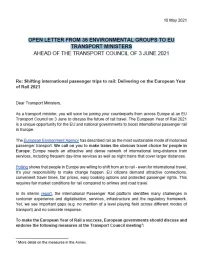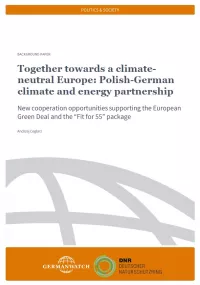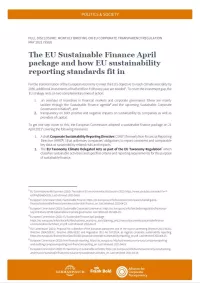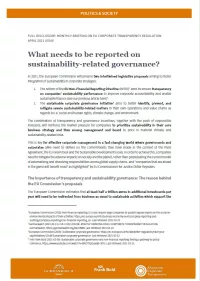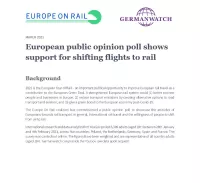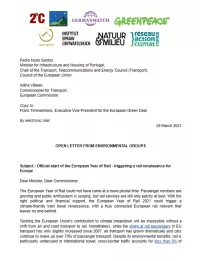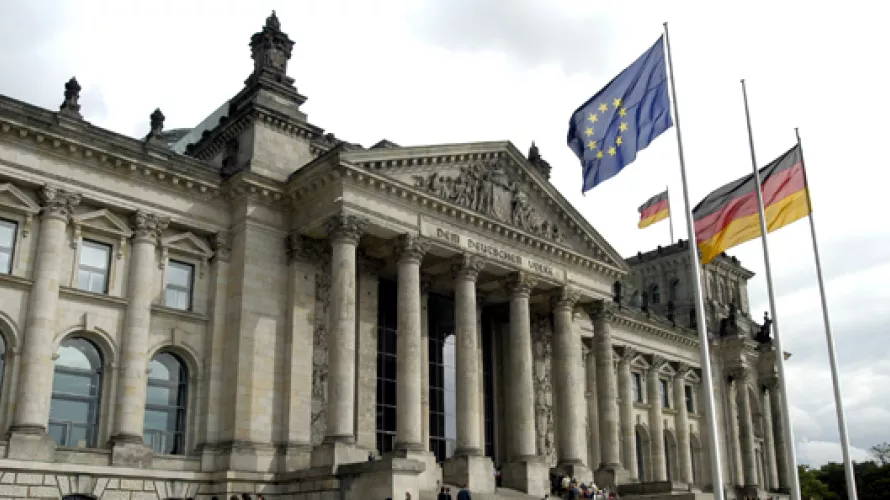
Aktuelles zum Thema
Germanwatch together with 35 European environmental NGOs ask EU transport ministers to shift international passenger rail trips to rail. In an open letter, published on 10 May 2021, the NGOs request ministers to take five measures at the June 2021 Transport Council, which are mentioned in the open letter.
Raising the ambition of EU’climate policy can only succeed by strengthening cooperation between the EU-member states. Poland and Germany have always played an important role in shaping the EU’s climate and energy policies, but they have never sufficiently exploited the potential of their cooperation opportunities. This was partly due to very different political goals, but also to the lack of established bilateral exchange formats between policy makers. In this paper, prepared for Germanwatch and DNR, the Polish-German researcher and energy transition expert Andrzej Ceglarz describes how the European Green Deal and the European Commission's “Fit for 55” package offer the two countries a wide range of opportunities to strengthen their climate and energy cooperation. Ceglarz presented concrete proposals for German-Polish climate policy cooperation.
Despite COVID, climate change and the zero-carbon transition are still high on the agenda of societies, companies and governments in the EU and also Germany. The EU is progressing with its European Green Deal plan in order to significantly accelerate the speed of the economic transition. But can the EU and Germany maintain a high transition speed in the years to come? Or is there a substantial likelihood, other issues may squeeze the climate agenda out of the top priorities, governments and businesses take care of? In his article "Germany's Green Transition: Will It Continue?" Oldag Caspar analyses this question for the leading Russian foreign policy think tank Valdai Club.
This year will be key for future climate policy and especially for sustainable finance in Germany and Europe. Sustainable Finance plays a crucial role in improving climate protection and sustainable growth. To this end, Germanwatch joined forces with the Alliance for Corporate Transparency in order to push towards greater corporate responsibility and disclosure requirements to meet the EU and Paris climate targets. In the second article of our briefing series "Full Disclosure: Monthly Briefing on EU Corporate Transparency Regulation", we aim to shed light on the revision the EU Non-Financial Reporting Directive carried out by the European Commission.
Many people in Europe are willing to shift from air to rail - even for international travel and often even if they have to accept significantly longer travel times. This is shown by a new representative survey conducted by the opinion research institute YouGov in Germany, Poland, France, Spain and the Netherlands. The survey, commissioned by Transport&Environment and Germanwatch, was published to mark the official start of the European Year of Rail 2021 on March 29.
On 29 March, the Portuguese EU Council presidency officially launches the European Year of Rail. Germanwatch and other European NGOs have send an open letter to the Commission and the Portuguese presidency to call for a European rail renaissance. The EU and the member state governments need to use the European Year of Rail 2021 to give a boost to cross-border passenger rail, with the following measures:


